In today’s fast-paced digital landscape, leveraging the power of digital marketing platforms is essential for businesses aiming to achieve sustainable growth and success. From social media channels to email marketing platforms, these digital tools offer unparalleled opportunities to reach and engage with target audiences. In this article, we’ll explore effective strategies for utilizing platforms to their fullest potential and driving business growth. Explore the world of Digital Marketing with Mazor Digital.
How to Use Digital Marketing Platforms
Define Your Objectives and Target Audience
Before diving into digital marketing platforms, it’s crucial to clearly define your business objectives and identify your target audience. Whether your goal is to increase brand awareness, drive website traffic, or boost sales, understanding your objectives will help you choose the most appropriate platforms and customize your strategies accordingly. Additionally, defining your target audience allows you to create content and messaging that resonates with your ideal customers, increasing the effectiveness of your digital marketing efforts.
Choose the Right Platforms
With a plethora of digital marketing platforms available, selecting the ones that align with your objectives and target audience is essential. Social media platforms such as Facebook, Instagram, Twitter, and LinkedIn are ideal for building brand awareness and engaging with your audience in real-time. Email marketing platforms like Mailchimp and Constant Contact are effective for nurturing leads and driving conversions. Content management systems (CMS) such as WordPress and Shopify are essential for creating and managing your online presence. By focusing your efforts on platforms that best suit your business goals, you can maximize the impact of your digital marketing campaigns.
Create Compelling Content
Content is king in the world of digital marketing. Whether it’s blog posts, social media updates, videos, or email newsletters, compelling content is essential for capturing the attention of your audience and driving engagement. When creating content for digital marketing platforms, focus on providing value to your audience by addressing their pain points, answering their questions, and offering solutions to their problems. By consistently delivering high-quality, relevant content, you can establish your brand as a trusted authority in your industry and build long-lasting relationships with your audience.
Optimize for Search Engines
Search engine optimization (SEO) plays a crucial role in ensuring that your content gets discovered by your target audience. By optimizing your website and content for relevant keywords and phrases, you can improve your visibility in search engine results pages (SERPs) and attract organic traffic to your site. When publishing content on digital marketing platforms, pay attention to on-page SEO elements such as meta titles, meta descriptions, and headings. Additionally, incorporate relevant keywords naturally throughout your content to improve its search engine rankings and drive more organic traffic to your website.
Monitor and Analyze Performance
Effective digital marketing requires continuous monitoring and analysis of performance metrics to gauge the success of your campaigns and make data-driven decisions. Utilize analytics tools provided by digital marketing platforms to track key performance indicators (KPIs) such as website traffic, engagement rates, conversion rates, and return on investment (ROI). By closely monitoring your performance metrics, you can identify what’s working well and what areas need improvement, allowing you to optimize your strategies for maximum effectiveness.
Iterate and Adapt
In the dynamic realm of digital marketing, change is the only constant, marked by the continuous emergence of fresh trends, technologies, and algorithms. Staying ahead of this evolving landscape mandates a proactive stance, requiring the constant iteration and adaptation of strategies in response to shifting market dynamics and consumer behaviors. To navigate these ever-changing waters effectively, it’s imperative to stay informed about industry trends, experiment with novel tactics and techniques, and remain flexible enough to pivot strategies as circumstances dictate. By fostering an environment of agility and adaptability, businesses can position themselves for sustained growth and success amidst the rapid evolution of the digital landscape.
In summary, digital marketing platforms present unmatched opportunities for businesses to effectively connect with and engage their target audiences. By establishing clear objectives, selecting appropriate platforms, crafting compelling content, optimizing for search engines, monitoring performance, and iteratively refining strategies, businesses can amplify the impact of their digital marketing endeavors and foster sustainable growth. At Mazor Digital, our commitment lies in assisting businesses in leveraging the potential of platforms to accomplish their objectives and unlock their full potential in the digital era. Inspired? Contact us now to learn more about Digital Marketing Services.
Frequently Asked Questions
1. What are digital marketing platforms?
Digital marketing platforms encompass a diverse array of online tools and channels utilized by businesses to promote their products or services, engage with their audience, and drive conversions. These platforms span various categories, including social media networks, email marketing services, content management systems, and search engine optimization tools. By leveraging these versatile platforms, businesses can effectively reach and interact with their target audience across multiple digital touchpoints, enhancing brand visibility and fostering meaningful customer relationships.
2. Why are digital marketing platforms important for business growth?
Digital marketing platforms provide businesses with unparalleled opportunities to effectively reach and engage their target audience. By leveraging these platforms, businesses can enhance brand visibility, drive website traffic, generate leads, and ultimately boost sales and revenue growth. Through strategic utilization of digital marketing channels such as social media, email marketing, content management systems, and search engine optimization tools, businesses can optimize their online presence and capitalize on the diverse range of opportunities offered by the digital landscape.
3. How do I choose the right digital marketing platforms for my business?
Choosing the right digital marketing platforms depends on your business objectives and target audience. Conduct market research to identify where your audience spends their time online, and select platforms that align with your goals. For example, if you’re targeting a professional audience, LinkedIn may be more suitable than Instagram.
4. What types of content should I create for digital marketing platforms?
The type of content you create depends on your audience preferences and the platform you’re using. Consider creating a mix of blog posts, social media updates, videos, infographics, and email newsletters to cater to different audience segments and engagement preferences.
5. How can I measure the effectiveness of my digital marketing efforts?
To measure the effectiveness of your digital marketing efforts, track key performance indicators (KPIs) such as website traffic, engagement rates, conversion rates, and return on investment (ROI). Use analytics tools provided by digital marketing platforms to monitor performance and make data-driven decisions.
6. What role does search engine optimization (SEO) play in digital marketing?
Search engine optimization (SEO) is crucial for ensuring that your content is discovered by your target audience through organic search. By strategically optimizing your website and content with relevant keywords and phrases, you can enhance your visibility in search engine results pages (SERPs) and attract organic traffic to your site. This process involves various techniques, including on-page optimization, content creation, link building, and technical optimizations, all aimed at improving your website’s ranking and driving qualified traffic from search engines.
7. How can I adapt my digital marketing strategies to keep up with changing trends?
To adapt your digital marketing strategies to changing trends, stay informed about industry developments, monitor competitor activities, and experiment with new tactics and techniques. Be willing to iterate and pivot your approach based on emerging trends and evolving consumer behaviors to stay ahead of the curve.



